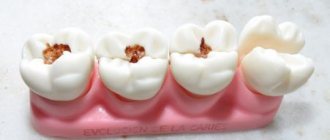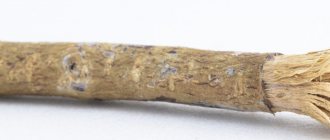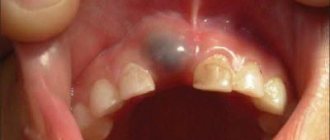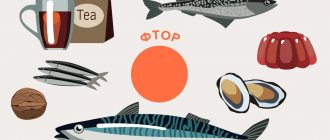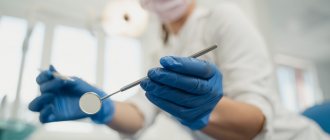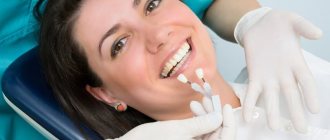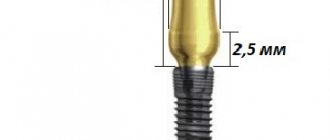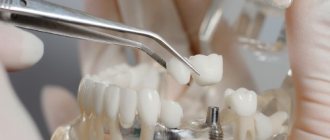15.09.2016
Author: Dentist-therapist Kuzub Yana Nikolaevna
To keep teeth healthy, both the general condition of the body, good hygiene, timely treatment, and the foods that the patient eats daily are important. Dentist-therapist at the Attribute Clinic, Yana Nikolaevna Kuzub, shares useful information about what foods and drinks are healthy, and what you should avoid to maintain a healthy smile.
WATER
Since the human body consists of more than half of water, it is logical to conclude that water is an important product for our body. Water is also good for dental health.
If you drink little water during the day (precisely water. Juices, soda, tea, coffee, soups do not count), among other negative consequences, you will experience a feeling of dry mouth. This means that not enough saliva is produced: a logical consequence of dehydration, because saliva is 98.5% water.
The composition of saliva includes mucins (no more than 0.5% of the total chemical composition of saliva). Due to them, saliva not only has viscosity and elasticity, but also prevents the formation of bacterial plaque, because blocks the proliferation of harmful microorganisms.
However, you need to know that saliva can harm your teeth if you like sweets. In this case, it will contain large amounts of glucose, as a result of which it will only harm tooth enamel.
In addition to the fact that the possibility of salivation that protects teeth depends on water, water helps to mechanically clean the oral cavity of food debris, plaque and acids harmful to tooth enamel.
Jam and berries with small seeds
Seeds from raspberries, strawberries, blackberries and other berries can get stuck between teeth and in fissures (small grooves and depressions on the chewing surface of the teeth). If they are not removed quickly and correctly, this will inevitably lead to unpleasant consequences.
Treat without a drill. What procedures have dentists refused? More details
VEGETABLES, FRUITS, BERRIES, GREENS
Everyone knows that vegetables, unsweetened fruits and greens should be an important part of every person’s diet in order to maintain the balance of vitamins, minerals and other beneficial microelements in the body.
However, fresh vegetables, fruits and herbs are important for dental health, as they provide essential vitamins and minerals.
It is important to focus your diet on carrots as a source of keratin, pumpkin, which can restore white teeth due to the selenium it contains, and greens, especially spinach, which is rich in calcium.
Vegetables and greens enrich saliva with minerals that are beneficial to the health of tooth enamel (phosphate, fluoride, calcium).
It is important to understand that minerals are “leached” from teeth over time. Therefore, for the health of your teeth enamel, you must remember to eat fresh vegetables, herbs and unsweetened fruits.
Don't forget to take care of your gum health. Hard varieties of vegetables and fruits will help with this. Chewing solid food has a massage effect on the gums, thereby improving blood circulation in the mouth.
Greens will help take care of healthy oral microflora (parsley is especially good for this task), because contains antibacterial substances that can stop inflammatory processes, get rid of bad breath, and prevent caries.
Adviсe
Experts note that the effects of even the most harmful substances and products can be neutralized. It is enough just to follow the general recommendations for dental care. For example, carry out hygienic brushing or rinsing after every meal, brush your teeth twice a day according to the rules outlined by dentists, and do not forget about visiting a professional office, even if nothing hurts.
A well-planned diet and timely prevention of oral problems will help keep your teeth healthy and beautiful. As for products for children, the list is practically unchanged. It is important to observe the quantitative composition and take vitamins if they are lacking in the food the child receives. Preventive examinations are also necessary every six months to prevent problems in time.
NUTS and SEEDS
Nuts and seeds contain substances beneficial for teeth in particularly concentrated quantities, and therefore it is extremely important to eat them regularly.
It will be good if you eat not the same type of nut always, but different varieties of seeds and nuts. Introduce walnuts and pine nuts, hazelnuts and Brazil nuts, sesame seeds, sunflower seeds, and flax into your diet. This is important because the composition of nutrients in each nut is different, and therefore the effect is different for everyone. For example, pine nuts help the development of dental bone tissue.
At the same time, remember that cracking nuts with your teeth is a procedure that is traumatic for the tooth, so it is better to avoid it. For the same reason, it is harmful to crack seeds.
How much milk and dairy products should you consume daily?
Scientists have calculated how the daily need for calcium varies depending on age:
- 400 – 1200 mg for children depending on age;
- 1,000 mg for adults 18–59 years;
- 1,200 mg for people over 60 years of age;
- 1,300 mg for pregnant women and 1,400 mg for nursing mothers [4].
“Based on a normal diet, the average adult has a calcium deficiency of about 500 mg.”
Kuzmina E.M., M.D., WHO expert in dentistry, head. Department of Prevention of Dental Diseases of Moscow State Medical University [3]
In addition, the diet requires components that help absorb calcium. Two of them (phosphorus and magnesium) must be supplied in certain proportions: both their deficiency and excess play a negative role [1].
- Daily intake of vitamin D: 400 IU for children under 4 years of age, 600 IU for children, adolescents and people under 70 years of age, 800 IU for people over 70 years of age.
- The recommended ratio of calcium and magnesium is 1:0.5.
- The recommended ratio of calcium and phosphorus is 1:1.5–2;
- The required amount of protein for calcium absorption is 1.2–1.6 g per 1 kg of body weight [4].
Of all the listed excipients, only vitamin D is missing from milk and dairy products; all the others are contained in fairly significant quantities.
Given these data, all that remains is to check the table and find out how much of a particular dairy product is needed to replenish the daily requirement.
| Milk product | Contents per 100 g of product | |||
| Calcium, mg | Magnesium, mg | Phosphorus, mg | Protein, g | |
| Milk | 143 | 13 | 82 | 4,1 |
| Yogurt | 152 | 15 | 119 | 4,4 |
| Cottage cheese | 91 | 7 | 163 | 11,8 |
| Sour cream | 104 | 10 | 95 | 2,9 |
| Mozzarella cheese | 505 | 20 | 354 | 22,2 |
| Edam cheese | 731 | 30 | 536 | 25,0 |
| Gouda cheese | 700 | 29 | 546 | 24,9 |
| Brie cheese | 184 | 20 | 188 | 20,7 [5] |
What foods are harmful to teeth?
SWEET DRINKS
Sweet carbonated drinks are harmful to the body, especially to the teeth.
So-called soda and juice packages contain a lot of sugar, which not only destroys enamel, being a breeding ground for harmful bacteria, but also changes the chemical composition of saliva, saturating it with glucose, which also has an additional detrimental effect on dental health.
In addition, such drinks contain additives that can disrupt metabolic processes in the body.
Since sweets are harmful to teeth, you should not get carried away even with freshly squeezed natural juices, sweet fruits and berries. The fruit acids and glucose they contain can destroy tooth enamel.
Plain water will help prevent the negative effects of natural juice: just rinse your mouth with it.
SWEETS
Sweets can not only destroy a tooth, but also interfere with its natural restoration, because... The sugar they contain interferes with the absorption of calcium.
The only permitted sweet product can be dark chocolate, but only with a very high cocoa content. This chocolate can even prevent plaque because it contains antibacterial substances.
And if you really want to, please don’t forget to use dental floss after eating and rinse your mouth with water after eating.
DRIED FRUITS
This seemingly useful product, from the point of view of dental health, has a significant drawback - the viscosity of the product structure. This causes them to stick and get stuck in your teeth. Therefore, after eating dried fruits, you should not forget to use dental floss.
CAFFEINE
Coffee and other drinks containing caffeine dehydrate the body, interfere with absorption, and lead to vitamin and mineral deficiencies (including calcium). If you find it difficult to give up coffee, replace it with chicory.
Many people do not know that caffeine is found not only in coffee, but also in black and, especially, green tea. So if you like green tea (or black), try replacing it with herbal tea.
SIMPLE CARBOHYDRATES
And again about sugar. It is found not only in sweets and sugar. Simple sugars are part of starch, which, among other things, consists of potatoes (which is why dishes made from them are so unhealthy), and high-grade white flour.
If you find it difficult to give up flour products, switch to products that include whole grain flour.
ALCOHOL and MEDICINES
When drinking alcoholic drinks, try to dilute them with water, if possible, and then brush your teeth. In addition to the fact that alcohol contains a lot of sugar, which has a detrimental effect on enamel, it also causes dehydration, which means that the production of saliva, an important tool for protecting teeth and oral microflora, is reduced.
Just like alcohol, some medications can cause dehydration, so be sure to drink plenty of fluids while taking your medications.
Roasted nuts and seeds
Only fresh nuts and seeds, in particular, are good for the body and teeth. Fried ones, on the contrary, are harmful. And here's why: the beneficial substances contained in the fresh product are destroyed during the frying process. Moreover, harmful substances are formed in large quantities.
If you can't avoid roasted nuts or seeds, it will be less harmful to your health if you buy them fresh and only lightly roast them yourself at home.
How to choose healthy dairy products
To ensure that purchased dairy products only bring benefits, you need to follow a few simple rules.
- Study the information on the packaging: check the expiration date and compliance of the stated storage conditions with those provided by the retail outlet.
- Do not buy milk and dairy products secondhand from random sellers without appropriate declarations and certificates of conformity.
- In case of doubt about the quality of the goods, supporting documents should be required - they must be provided to the buyer.
- When choosing sour cream, you need to pay attention to the name so as not to buy a sour cream product based on vegetable fats.
- The previous advice also applies to cheese: it is necessary to distinguish between the names “cheese” and “cheese product”. In the second case, a substitute is used instead of part of the milk fat.
- You should choose yoghurts with a minimum shelf life and the shortest composition [6].
Consume high-quality dairy products in the required quantities, and your teeth will remain strong and healthy throughout your life.
How to save enamel?
This list of harmful foods does not mean at all that now you should not eat porridge, dried fruits and cannot afford a sip of soda if you really want to. You just need to remember that if you have eaten anything from this “prohibited list,” you need to brush your teeth or at least rinse your mouth, but in no case pick at them with toothpicks or mechanically impact your teeth and gums, except with a toothbrush and irrigator.
Of course, modern pharmaceuticals offer all kinds of means for remineralization and strengthening of enamel. However, you need to understand that its cultivation and restoration does not occur. The maximum that we can achieve using biological pastes and gels is to create a kind of hermetic environment around the tooth, its external minimal protection. In addition, it is worth considering that there are medicinal pastes that are prescribed by the doctor, and there are pastes from the group that I call “supermarket”. The latter can only mask the source of the problem, but nothing more. To carry out successful remineralization, you will first need professional dental treatment - it is important to thoroughly clean the tissues, and here you cannot do without professional hygiene.
